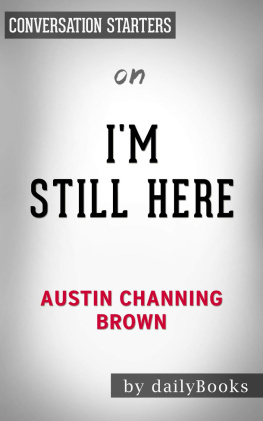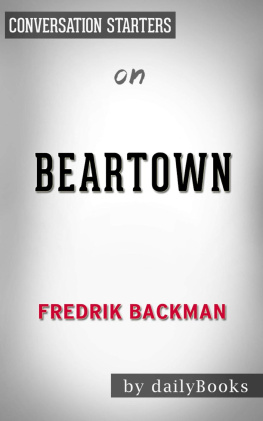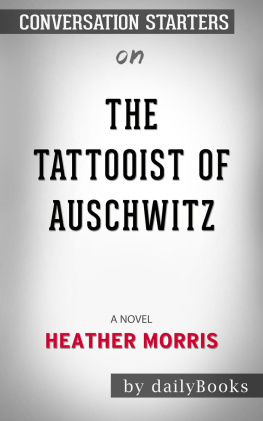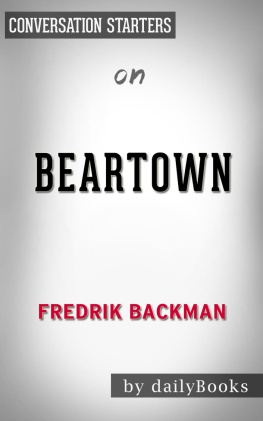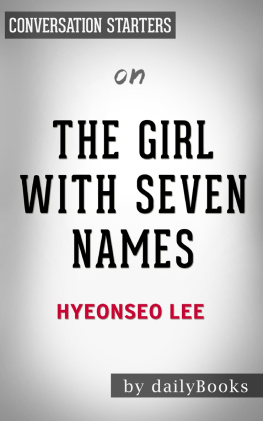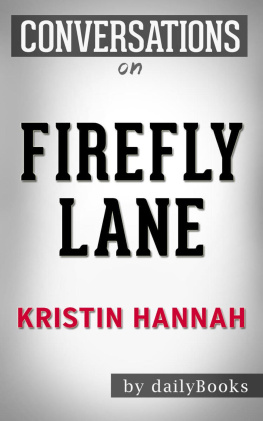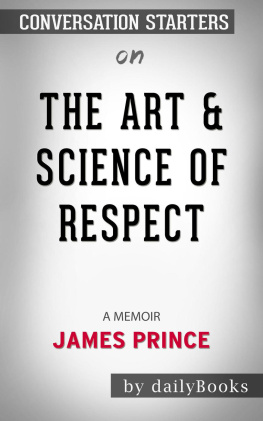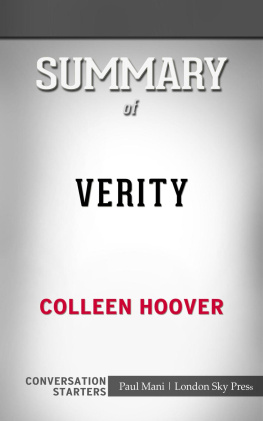Conversation Starters
for
Austin Browns
Im Still Here
By dailyBooks
About Us:
THROUGH YEARS OF EXPERIENCE AND FIELD EXPERTISE, from newspaper featured book clubs to local library chapters, dailyBooks can bring your book discussion to life. Host your book meets as we discuss some of todays most widely read books.
Copyright 2018 by dailyBooks. All Rights Reserved. Published in the United States of America
Disclaimer: This is an unofficial conversation starters guide. If you have not yet read the original work we encourage you to do so first before reading this Conversation Starters Product names, logos, brands, and other trademarks featured or referred to within this publication are the property of their respective trademark holders and are not affiliated with dailyBooks. The publisher and author make no representations or warranties with respect to the accuracy or completeness of these contents and disclaim all warranties such as warranties of fitness for a particular purpose. This guide is unofficial and unauthorized. It is not authorized, approved, licensed, or endorsed by the original book's author or publisher and any of their licensees or affiliates. No part of this publication may be reproduced or retransmitted, electronic or mechanical, without the written permission of the publisher.
Tips for Using dailyBooks Conversation Starters:
EVERY GOOD BOOK CONTAINS A WORLD FAR DEEPER THAN the surface of its pages. The characters and their world come alive through the words on the pages, yet the characters and its world still live on. Questions herein are designed to bring us beneath the surface of the page and invite us into the world that lives on. These questions can be used to:
- Foster a deeper understanding of the book
- Promote an atmosphere of discussion for groups
- Assist in the study of the book, either individually or corporately
- Explore unseen realms of the book as never seen before
Table of Contents
Introducing Im Still Here
I m Still Here: Black Dignity in a World Made for Whiteness by Austin Channing Brown is a book to that will engrave itself in a readers mind. Austin grew up in predominantly white area and her experiences of being a black female soon taught her a lesson that she has gone on to help others. Browns words are raw with passion and anger as she writes about her commitment against the white culture and their inherent racism even while trying to go against it. While Brown primarily works through Christian organizations with her talks, faith plays a minor role in Im Still Here . Brown begins her debut through explaining the reasoning of her name, Austin, as her parents wanted her to sound like a white male so she could get more job interviews. Brown writes about how people are always surprised when she walks in and they see a black female instead of the white male they are expecting. This in turn goes into the theme of her debut on how being a black female in a white work place is exhausting to deal with every day. Brown notes that white people are inheritance racist, even if they do not realize it. They are expecting Brown to be white though the white people have not yet realized that their white culture is not the result of rightness, goodness or of the Christian Gods blessing. Brown states that white supremacy must be seen for what it is and be named. Only then could the minuscule bit of hope that a community will name whiteness so that they can instead celebrate Blackness will begin to grow. Brown writes about her being part of the twenty percent in a white workforce makes it so she stands out even further, as everyone will know whether she is at a meeting or not. She and her other colored coworkers began to believe that their organization looked more towards having a diverse group while not wanting a diverse culture and thought. Brown defines white fragility and writes about how it is dangerous to others as it ignores the person within people of color and instead makes it so a white persons feelings are more important or even the most important thing to worry about. Now Brown does realize that there are many kind white people in the world, however that is the problem with racists. Brown writes how the internal structure of racism and how it operates will obligate people like Brown to be nice in return to white people being nice instead of speaking the truth to them. Brown states that white people want to desperately belong to the idea that only cruel white people are racist. However Brown writes that saying that a nice person is racist is offensive to them because it challenges their self-identification, making a white person more worried about being called racist rather than realizing their actions are in fact racist. Brown points out that every KKK member was loved by family members and friends; a monster is always well dressed and loved by the people it associates with. Brown makes sure readers understand that she is not a priest for a white person to try to absolve their sins. She states that white people really just want a Black person to forgive them, but that white guilt is deadly to a Black person while a white person tries to find their own relief from their actions. Brown then goes on to write about how a Black person can survive racism in an organization that totes they are antiracist. She begins that one should ask specifically why they are being interviewed and looked at to be hired. If the organizations answers do not work with ones reasons for being at that organization, then one should look elsewhere. Once hired, one should make sure that they define their terms of justice, anti-racism and diversity, for oftentimes the organizations version is different. Brown counsels that one should immediately find your people within the organization so that you can band together against racism within the organization. Lastly, Brown states that it doesnt really matter because Blackness will always be offensive to white people. Brown looked towards how white drug dealers and murderers are always seen as people first who just happened to do something wrong, while Black people must be perfect to be seen in the same way. Brown states that she doesnt mean to condemn white people, but her debut is about rejecting the idea and assumption that being white does not automatically make one right, chosen, closer to God, or make one the epitome of a human being.
A ustin Channing Brown began her journey when she was a bright eyed and curious seven year- old. While at the library trying to apply for a library card to check out a book, the librarian questioned the girls name, believing that it wasnt really her name and she was just making it up. Austin felt that librarian become suspicious of her and she ran to grab her parents. Austins parents confirmed that her name was truly Austin and added that they named her a males name so that she would be able to navigate the business world easier since it made her sound like a white male. At that moment, Austin began to realize how her darker skin colored made her different in the world she grew up in. Austin worked on her education at North Park University where she earned a bachelors degree in business management. She continued on with a masters degree from Marygrove College in social justice. Her desire for her degrees was to use them to help make social justice more prominent in her world. She began working for nonprofit organizations, universities, parachurch ministries and churches to help them advance in reconciliation of the socially unjust due for different skin colors. However as she had interviews for various jobs, she always noticed that the interviewer was surprised to see her walk in, a black female, rather than the white male they were expecting. As Austin travels between different organizations to give talks and speeches about racial justice, she worked on her memoir. Published in May, 2018, her debut book and memoir Im Still Here: Black Dignity in a World Made for Whiteness has kicked America for being too white and has stated her position on her thoughts on white supremacy. Austin Brown has become the new leading voice in her desire for racial justice and is committed to have as many workshops for faith, black womanhood and racial integration as she can. Her workshops are touted to being filled with humor, justice, pop culture and of course her personal way of telling the truth without pulling in her punches. Many have stated that while interviewing Austin, they felt a full range of emotions as she celebrated blackness with them. Brown worked on her writing skills as she wrote a column for Todays Christian Woman called Wild Hope. Im Still Here: Black Dignity in a World Made for Whiteness soon became one of Amazons bestsellers after it was published. Her debut continued its fame with receiving numerous acclaims from reviewers such as Booklist, Kirkus, and Publishers Weekly. Browns book was also featured in many other ways such as on BitchMedia, The Chicago Tribune , Religion News Service, Popsugar, and more. Brown hopes that with her book, her workshops, and her talks that she will one day live in a world where there is true racial justice. She hopes that her son will one day see people of color in true leadership positions with actual authority who can influence those around them. She hopes for true diversity in curriculums where Christian churches sing more gospel songs rather than predominantly songs written by white people.
Next page
